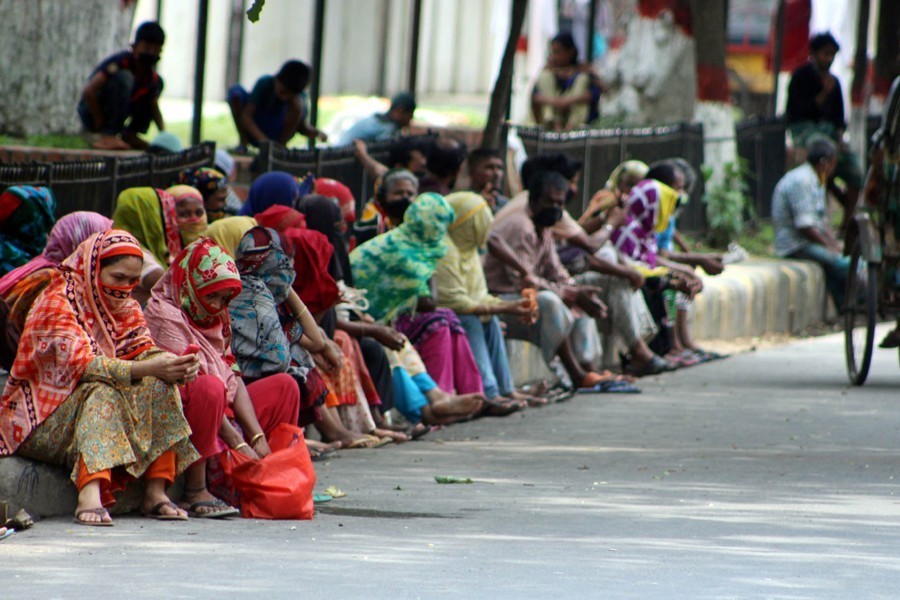It's such a crisis, in terms of its economic and social impacts, that the world has not faced in decades. The Covid-19 pandemic is feared to have pushed millions of people into poverty, disturbing earlier progress. Many international organisations such as the World Bank have forecast a rise in the incidence of poverty worldwide.
However, a large number of the new poor will be concentrated in the countries that are already struggling with higher poverty rates. Shocking impacts of the pandemic have disrupted the poverty reduction process also in our country, which was on track to attain various development goals. An emerging economy, Bangladesh had consistently recorded above 6.0 per cent GDP (gross domestic product) growth for many years. Rate of poverty came down to 22 per cent from 45 per cent in two decades thanks to supportive policy and the people's resilience and efforts to come out of the poverty shackle.
However, the coronavirus pandemic is making the country's poverty situation grim. The recent flooding, following a devastating cyclone, may aggravate the situation in some old pockets of poverty. Around 40 per cent of the people are believed to have been living below the poverty line since the virus was detected in the country in March and life and livelihoods were affected by it.
The measures to contain Covid-19 are causing loss of jobs and working opportunities at home and abroad, and higher price of essentials. The poor are also not getting proper medi-care services and schooling facilities during the pandemic. Although the impacts of Covid-19 are and will be felt by most households, it's the poor who have been the most vulnerable group for both immediate and long-term effects of the virus outbreak.
In some cases, many of the poor, especially the ones living in rural areas, appear to have been less-affected by the health challenges despite limited access to medi-care services. But the erosion of earning caused by shutdown and other measures and their effects in urban areas have hurt the poor that include rural households dependent on livelihoods available in urban areas.
The urban poor like rickshaw pullers, street vendors and informal sector workers, live in congested houses with poor services and are thus more exposed to the risk of being infected with coronavirus and other diseases. The children of both rural and urban poor families are sure to be deprived of the opportunity of online classes unlike the children from rich and middle class families.
The poor who depend on agriculture and non-farm rural activities may also be affected due to fall in urban demand. Alarmingly, many of the non-poor people who actually cannot seek help from the rich or the government, are facing the risk of slipping into poverty.
The government has in the meantime reopened the economy despite higher cases of infection and continued death. Such a decision may have some positive impacts on the livelihoods of the poor. However, their health challenges remain. The government has offered some incentives like mobile financial services, schemes for employment and social safety net programmes.
Still, in view of the gravity of the situation, the government alone cannot solve the entire problem. Affluent people and different organisations need to take initiatives to ensure healthcare facilities including protective equipment, create economic opportunities, provide social supports and meet some other demands of the poor - visible and invisible. Otherwise, we all will lose the progress we made earlier. If the poor are sidelined from the mainstream economic activities, it would be impossible to rebuild the post pandemic economy in a just, equitable and sustainable manner.
Khandker Rahat Mahmud is a Senior Principal Officer at a bank.


